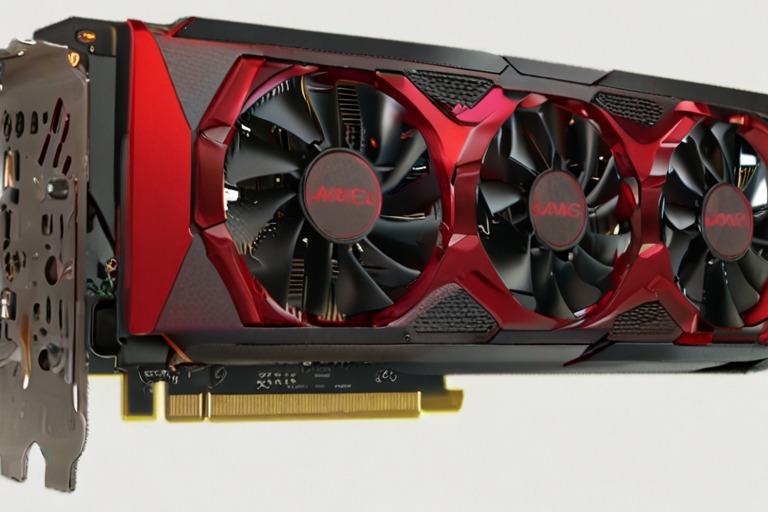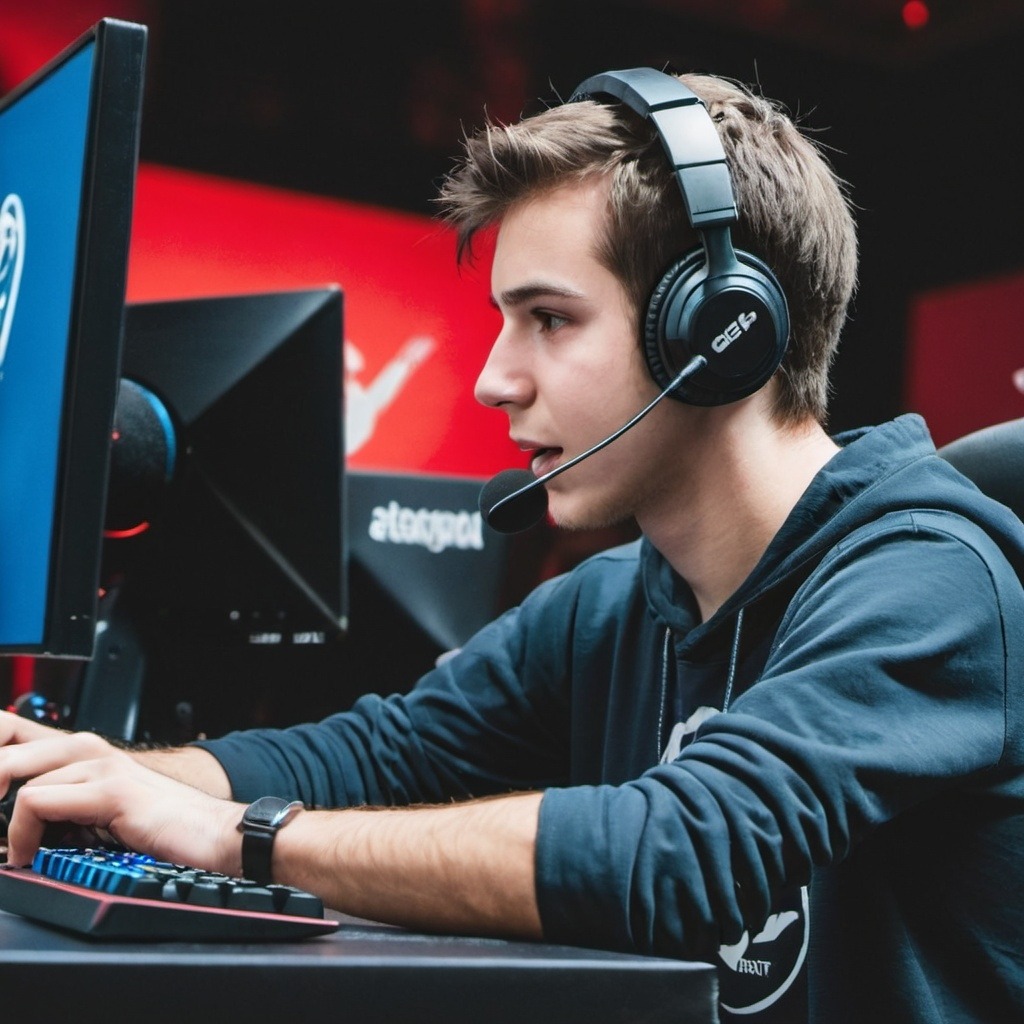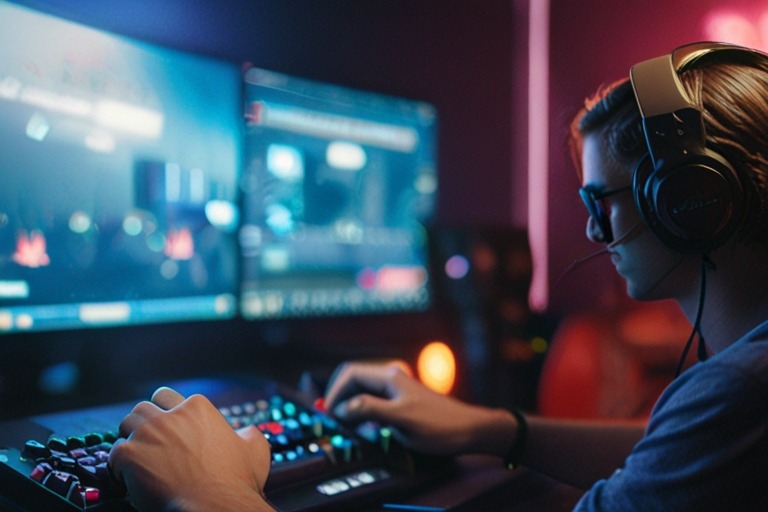
In recent years, the esports industry has experienced unprecedented growth, transforming from a niche hobby into a global phenomenon. With millions of fans tuning in to watch their favorite games and players, esports has become a major player in the entertainment sector. According to Newzoo’s Global Esports Market Report, the global esports audience is expected to reach 577.2 million by 2024, highlighting the incredible expansion of this digital arena. Esports tournaments now rival traditional sports events in terms of viewership and prize money, with top players earning lucrative contracts and sponsorship deals.
Importance of Becoming a Pro Gamer in the Current Digital Age
In today’s digital age, the appeal of becoming a professional gamer goes beyond just the thrill of competition. For many, it represents a viable career path with substantial financial rewards. The popularity of streaming platforms like Twitch and YouTube Gaming has opened up new avenues for gamers to monetize their skills and build personal brands. Successful pro gamers not only compete in high-stakes tournaments but also engage with large audiences through live streams and social media, creating multiple revenue streams.
Moreover, the skills developed through gaming—such as strategic thinking, teamwork, and quick decision-making—are highly transferable and valued in various professional fields. As the digital landscape continues to evolve, the influence of esports and professional gaming is set to grow even further, making now an exciting time to embark on the journey to becoming a pro gamer.
Choose Your Game
Overview of Popular Esports Games
The first step on the path to becoming a pro gamer is selecting the right game. The esports scene is rich with a variety of games, each offering unique challenges and competitive opportunities. Here are a few of the most popular esports games:
League of Legends (LoL): Known for its strategic depth and team-based gameplay, LoL has a massive global following and hosts some of the largest tournaments in the esports calendar, such as the League of Legends World Championship.
Fortnite: This battle royale game took the world by storm with its vibrant graphics and
fast-paced action. It appeals to a broad audience and has become a staple in the esports world, with events like the Fortnite World Cup offering substantial prize pools.
Dota 2: Famous for its complex mechanics and high skill ceiling, Dota 2 is another major player in the esports arena. The International, its premier tournament, is renowned for its multi-million dollar prize pool, attracting the best players from around the globe.
Counter-Strike: Global Offensive (CS): A tactical first-person shooter with a strong emphasis on teamwork and strategy, CS remains one of the most enduring and competitive esports titles, with numerous tournaments and leagues.
Overwatch: Combining elements of first-person shooters and team-based strategy, Overwatch’s diverse cast of characters and dynamic gameplay have earned it a dedicated esports following.
Tips for Selecting a Game That Suits Your Interests and Skills
Choosing the right game is crucial for your success as a pro gamer. Here are some tips to help you make the best choice:
Identify Your Interests: Start by exploring different games to see which ones you enjoy the most. Passion for the game is essential as it will drive your motivation to practice and improve.
Assess Your Skills: Different games require different skill sets. For example, if you have quick reflexes and enjoy fast-paced action, you might thrive in a first-person shooter like CS or Overwatch. If you prefer strategic thinking and teamwork, a game like League of Legends or Dota 2 might be a better fit.
Consider the Community: The community around a game can significantly impact your experience. Look for games with active, supportive communities where you can learn and grow. Participating in online forums, watching streams, and joining social media groups can give you a sense of what each community is like.
Research the Competitive Scene: Investigate the competitive landscape of the games you’re interested in. Look at the size and structure of tournaments, the level of competition, and the opportunities for new players. Some games have well-established professional scenes, while others are more accessible for newcomers.
Test and Experiment: Don’t rush your decision. Spend time playing different games to get a feel for each one. Many esports games offer free trials or are free-to-play, allowing you to test them out without any financial commitment.
By carefully selecting a game that aligns with your interests and skills, you’ll set a strong foundation for your journey to becoming a pro gamer.
Invest in the Right Gear
Importance of High-Quality Gaming Equipment
High-quality gaming equipment is essential for anyone aspiring to become a professional gamer. The right gear can enhance your performance, provide comfort during long gaming sessions, and give you a competitive edge. Professional-grade equipment is designed to be more responsive, durable, and ergonomic, which can make a significant difference in high-stakes competitions. Investing in top-notch gear isn’t just about having the best tools; it’s about ensuring that your equipment can keep up with your skills and help you perform at your best.
Recommendations for Essential Gear
PC: The heart of any gaming setup is the PC. Look for a high-performance machine with a powerful processor (e.g., Intel i7 or AMD Ryzen 7), plenty of RAM (16GB or more), and a top-tier graphics card (e.g., NVIDIA GeForce RTX 3080 or AMD Radeon RX 6800 XT). This will ensure smooth gameplay and the ability to run demanding games at high settings.

Mouse: A good gaming mouse is crucial for precision and speed. Opt for a mouse with adjustable DPI settings, ergonomic design, and programmable buttons. Popular choices include the Logitech G Pro X Superlight, Razer DeathAdder V2, and SteelSeries Rival 600.
Keyboard: Mechanical keyboards are preferred by pro gamers for their tactile feedback and durability. Look for one with customizable keys, anti-ghosting features, and a comfortable layout. Top recommendations include the Corsair K95 RGB Platinum, Razer BlackWidow Elite, and SteelSeries Apex Pro.
Headset: Clear communication and immersive sound are vital in esports. Choose a headset with excellent audio quality, a comfortable fit, and a reliable microphone. Some of the best options are the HyperX Cloud II, SteelSeries Arctis 7, and Logitech G Pro X.
Tips for Setting Up a Comfortable and Efficient Gaming Environment
Creating a comfortable and efficient gaming environment can significantly impact your performance and well-being. Here are some tips to help you set up the perfect gaming space:
Ergonomics: Ensure that your gaming chair and desk are ergonomically designed to support long hours of play. A chair with good lumbar support and adjustable features will help maintain
proper posture and reduce strain. Your desk should be at the right height to keep your monitor at eye level and your arms at a comfortable angle.
Lighting: Proper lighting is crucial to reduce eye strain and create an inviting atmosphere. Natural light is best, but if that’s not possible, use adjustable LED lights to illuminate your space. Avoid harsh overhead lights and consider using bias lighting behind your monitor to reduce glare.
Cable Management: Keep your gaming area tidy and organized with proper cable management. Use cable ties, clips, and sleeves to bundle and hide cables, preventing clutter and potential hazards.
Monitor Positioning: Position your monitor at eye level and about an arm’s length away from your face. This helps reduce neck strain and allows for a more comfortable viewing angle. If you use multiple monitors, arrange them in a way that minimizes head movement.
Soundproofing: If possible, set up your gaming area in a quiet, isolated part of your home. Consider using soundproofing materials like foam panels or curtains to reduce outside noise and create a more immersive gaming experience.
Personal Touches: Finally, personalize your gaming space with items that inspire and motivate you. Posters, collectibles, and lighting effects can make your environment more enjoyable and unique to your tastes.
By investing in high-quality equipment and creating an optimal gaming environment, you’ll be well-equipped to train hard and compete at the highest levels.
Develop Your Skills
Strategies for Improving Gameplay
Becoming a professional gamer requires dedication and a strategic approach to skill development. Here are some effective methods to enhance your gameplay:
Practice Routines: Consistency is key in mastering video games. Set up a daily practice schedule that includes warm-ups, skill drills, and playing full matches. Focus on specific areas where you need improvement, such as aiming, reaction time, or strategy execution.
Drills and Exercises: Incorporate targeted drills into your practice routine. For shooters, practice aiming and accuracy with aim trainers like Aim Lab. For strategy games, play scenarios that challenge your decision-making skills. Consistent repetition helps build muscle memory and enhances performance.
Play with and Against Skilled Players: Joining teams or playing against high-level opponents pushes you to improve. Look for online communities or local gaming clubs where you can find competitive matches. Learning from more experienced players can accelerate your progress.
Importance of Watching Professional Streams and Tutorials
Watching professional gamers can provide invaluable insights into advanced techniques and strategies. Here’s why it’s essential:
Learning from the Best: Professional gamers often stream their gameplay or upload tutorials on platforms like Twitch and YouTube. Observing their tactics, decision-making processes, and in-game mechanics can help you understand what it takes to compete at the highest level.
Staying Updated: The meta, or the most effective strategies, in video games frequently changes. By following professional streams, you can stay informed about the latest trends, updates, and patches that might affect your gameplay.
Inspiration and Motivation: Watching your favorite pro gamers can be highly motivating. Their journey from amateur to professional, the dedication they exhibit, and the rewards they earn can inspire you to strive for your own gaming goals.
Tips for Analyzing and Learning from Your Own Gameplay
Self-analysis is crucial for continuous improvement. Here are some tips to effectively review your gameplay:
Record Your Sessions: Use software to record your gaming sessions. This allows you to replay and analyze your performance objectively. Look for patterns in your mistakes and successes.
Break Down Your Gameplay: After recording, take time to break down your gameplay into segments. Focus on specific aspects like decision-making, positioning, and execution. Identify areas where you consistently struggle and target them in your practice routines.

Compare with Professional Gameplay: Watch recordings of professional gamers and compare their strategies with your own. Note the differences in approach, technique, and timing. Try to incorporate some of their methods into your gameplay.
Seek Feedback: Join online communities or forums where you can share your gameplay with others. Constructive criticism from fellow gamers can provide new perspectives and highlight areas you might have overlooked.
Set Goals: Based on your analysis, set specific, measurable goals for improvement. Whether it’s increasing your accuracy by a certain percentage or mastering a new strategy, having clear objectives helps focus your practice.
Stay Patient and Persistent: Skill development takes time. Don’t get discouraged by setbacks or slow progress. Keep refining your strategies, learning from your mistakes, and pushing forward.
Join the Gaming Community
Benefits of Joining Online Forums and Communities
Being part of the gaming community can significantly enhance your journey to becoming a professional gamer. Here’s why joining online forums and communities is beneficial:
Knowledge Sharing: Online forums are treasure troves of information where gamers share tips, strategies, and updates about their favorite games. You can learn advanced techniques, game mechanics, and even receive advice on optimizing your setup.
Support and Motivation: Engaging with like-minded individuals who share your passion for video games can be incredibly motivating. The community provides emotional support during tough times and celebrates your achievements, keeping you motivated and focused.
Skill Development: Interacting with other gamers allows you to challenge yourself against different playstyles and strategies. Friendly competitions, discussions, and feedback from fellow gamers can accelerate your skill development.
Staying Updated: Forums and communities are often the first to know about game updates, patches, and new releases. Being active in these spaces ensures you’re always in the loop and can adapt to changes quickly.
Tips for Finding and Joining a Local or Online Gaming Group
Finding the right group to play with can make a huge difference in your gaming experience. Here are some tips to help you find and join a suitable gaming group:
Research Platforms: Popular platforms like Discord, Reddit, and Facebook have numerous gaming groups dedicated to various games and interests. Search for groups related to your chosen game and read through their rules and guidelines to ensure they align with your preferences.
Attend Local Events: Look for local gaming events, tournaments, or meetups. These events are great places to meet other gamers and form connections. Websites like Meetup.com often list gaming-related events in your area.
Join Online Communities: Websites like Reddit have dedicated subreddits for almost every game where players discuss strategies, share experiences, and organize gaming sessions. Joining these subreddits can help you find a group that matches your skill level and interests.
Use In-Game Features: Many games have built-in features to help players find groups or clans. Utilize these tools to connect with other players directly within the game. This can lead to forming teams and building long-term gaming relationships.
Ask for Recommendations: Don’t hesitate to ask for recommendations from fellow gamers or friends who play similar games. They might already be part of a group that’s looking for new members.
Importance of Networking and Building Relationships within the Gaming Community
Building relationships within the gaming community is crucial for your growth and success as a professional gamer. Here’s why networking is essential:
Opportunities for Collaboration: Strong connections can lead to opportunities for collaboration, such as joining a team, participating in tournaments, or even getting sponsorship deals. The more people you know, the more doors can open for you in the gaming world.
Learning and Growth: Networking with experienced gamers and professionals provides you with valuable insights and advice. Mentors and peers can guide you, share their experiences, and help you avoid common pitfalls.
Exposure and Recognition: Being active in the community increases your visibility. Participating in discussions, helping others, and showcasing your skills can earn you recognition and respect, paving the way for potential partnerships and sponsorships.
Building a Personal Brand: Networking helps you build a personal brand. Consistently interacting with the community, streaming your gameplay, and engaging with your audience can establish you as a respected figure in the gaming world.
Emotional Support and Camaraderie: The gaming community can become a source of emotional support and friendship. Building relationships with fellow gamers creates a sense of camaraderie, making your gaming journey more enjoyable and less isolating.
